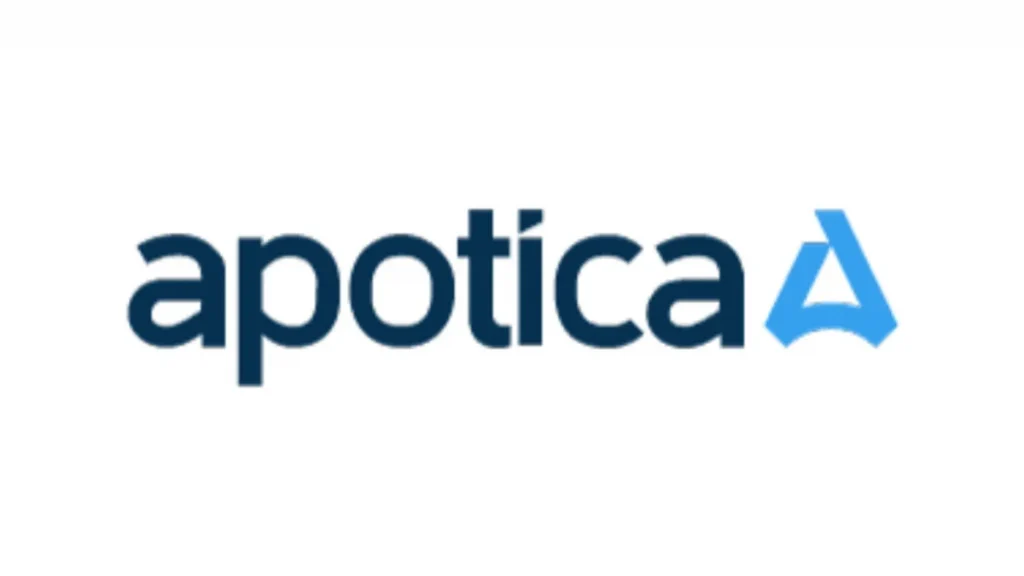- APOTICA builds software platforms for tracking inventory, procurement, demand forecasting and supplier performance in the pharmaceutical sector
- The firm operates in a wider health-tech and ICT services landscape facing challenges of data fragmentation, funding constraints and interoperability
APOTICA COMPANY LIMITED: mission and operations
“Brings together the best information and communication technologies to help clients grow, compete, and serve their customers better.” APOTICA is a Pan-African IT services and healthtech company that was founded in 2009. Its ISO 9001:2015 and ISO 27001:2013 certifications, together with its adherence to TRACE and other standards, demonstrate its dedication to quality, security, and openness. It is headquartered in Accra, Ghana.
However, more recent news highlights that APOTICA Company Limited (in uppercase, frequently stylized as APOTICA) has refocused (or diversified) into healthtech, despite its public profile emphasizing infrastructure, cloud, cybersecurity, digital infrastructure, and Internet services. The firm now develops data systems for pharmaceutical supply chain visibility, particularly in Ghana’s public and private healthcare sectors. Its software tracks inventory, procurement cycles, forecasting, supplier performance and helps avoid stockouts, overstock situations and expiry waste.
According to BTW Media, APOTICA works with government bodies, development partners, and health facilities to digitise operations and connect procurement officers, warehouse managers and policy stakeholders in near real time. This dual orientation—ICT services and healthtech—is unusually broad, enabling synergies between infrastructure capability and domain application.
Also read: MainOne Cable Company (Ghana) Ltd: Driving Digital Growth in West Africa
Also read: Agent Banking Company: Empowering financial inclusion
Industry context and challenges for APOTICA
The global healthtech and pharmaceutical supply-chain sectors are advancing rapidly, propelled by demands for transparency, data integrity, resilience and efficiency. But they face serious hurdles:
- Data fragmentation and siloed systems: Many health systems still use manual or disconnected record keeping, so integration among stakeholders is often missing.
- Limited funding and infrastructure in low/middle-income contexts: Rural health centres may lack reliable connectivity or electricity, which complicates real-time digital operations.
- Interoperability and standards: Ensuring systems can talk to each other—especially with legacy systems or donor platforms like OpenLMIS or mSupply—is a constant technical struggle.
- Regulatory, privacy and security compliance: As pharmaceutical data is sensitive, firms must respect data sovereignty, privacy laws, and security best practices.
- Adoption and change management: Even with good software, persuading human users (procurement officers, warehouse staff) to shift practice is often the greater obstacle.
In recent years, innovations in AI forecasting, edge computing for offline resilience, blockchain for immutable traceability, and interoperable APIs have advanced the frontier. Healthtech firms increasingly embed predictive demand modelling to anticipate shortages or surpluses before they arise.
For APOTICA, its advantage may lie in its grounding in both infrastructure (Internet, cloud, cybersecurity) and vertical health application. It can, in principle, deploy resilient connectivity, robust security, and domain-aware software in one package.
Public statements from the company’s leadership (such as its CEO Felix Nkansah) reflect this integrated vision: Nkansah is presented on the site as driving strategic direction, aligning services with industry transitions, and identifying customer needs. Meanwhile, APOTICA’s management team includes professionals in risk & compliance, technology, project delivery and client experience—suggesting that the firm is building organisational capacity to service complex, regulated clients.
As the healthtech landscape in Africa intensifies, APOTICA will need to sustain innovation, interoperability and strong partnerships. Its journey reflects a microcosm of the tech-driven transformation of public health logistics on the continent.

